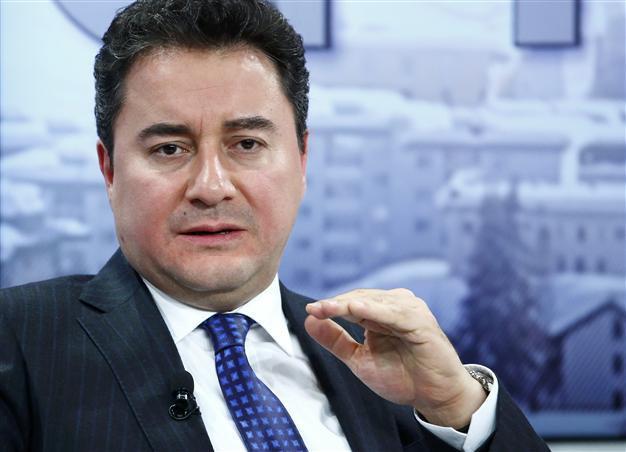G-20 agenda to focus on energy, tourism, Turkish deputy PM tells ambassadors
ANKARA – Anadolu Agency

REUTERS Photo
The G-20 agenda in 2015 under the Turkish presidency will include engagement groups on energy and tourism, as well as side projects for businessmen, labor unions, youth groups, think tanks and women, Turkish Deputy Prime Minister Ali Babacan has said.
Babacan was addressing ambassadors from G-20 countries in Ankara on Jan. 27.
Turkey assumed the G-20 presidency on Dec. 1, 2014. The first G-20 Finance Ministers and Central Bank Deputy Governors’ level meeting will be held in Istanbul between Feb. 8-9, 2015.
Babacan added that the World Tourism Organization wanted to organize a meeting under Turkey's presidency later this year.
As the official agenda of the G-20 is already heavy, Turkey plans to open the floor for unofficial groups like the B-20 – a working group for the business world. Other bodies will be the L-20 for labor unions, the T-20 for think tanks, the Y-20 for youth organizations, the C-20 for nongovernmental organizations and civil society groups, and the W-20 for boosting the participation of women in business and entrepreneurship.
Discussing the content of Turkey's G-20 agenda, Babacan said they divided its topics into three under the title “Three I’s”: Inclusiveness, implementation and investments.
He said the first “I” – inclusiveness – included the two main pillars of “intra-national inclusiveness” and “international inclusiveness.”
Emphasizing that they would give special importance to small- and medium-sized enterprises, Babacan said most employment was created by SMEs in G-20 countries, so the needs of SMEs would be taken into account during every agenda item of the G-20.
Babacan said they had spoken to the International Chamber of Commerce to establish an international, permanent platform for SMEs to raise their voices globally.
He added that under the international dimension of the "inclusiveness" pillar of Turkey's G-20 agenda, they will discuss the situation of “low-income developing countries.”
“Under every G-20 agenda, we should ask ourselves whether their needs are adequately covered and addressed,” said Babacan, adding that inequality and healthcare issues will be particularly discussed during the meetings.
Naming “implementation” as the second “I,” Babacan pointed out that many countries are already aware of the importance of structural reforms and have prepared their agendas for the coming period.
“They [the OECD and the IMF] expect that if the G-20 countries implement what they have already committed to, global growth will be 2 percent higher than the usual scenario in about five years’ time,” he said.
The G-20 leaders’ summit will be held in Antalya on Nov. 15-16, 2015.
